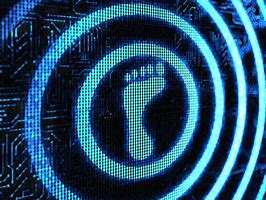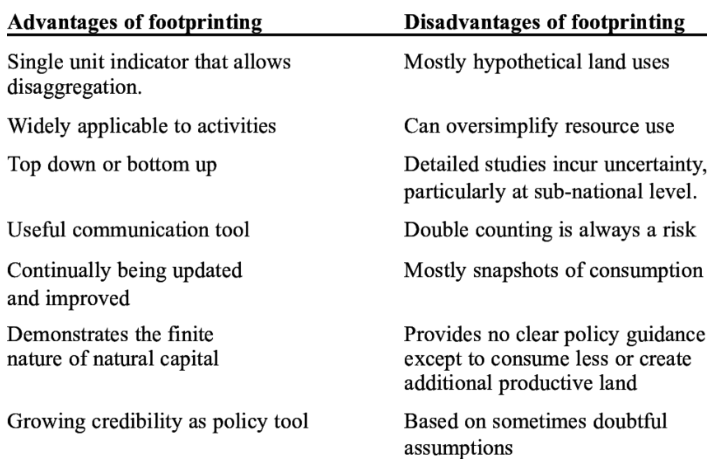Breification B16: What is Digital Footprint. How an eagle eye is active?
A digital footprint is a file of our online exercise created each time we go online. It consists of all our online things to do and can be considered as an impact on our identification that lingers even when we’re offline. A digital footprint is the path of statistics we go away at the back of whilst the use of digital technology. We create these footprints with the aid of the usage of the Internet, social media, credit score cards, loyalty cards, GPS systems, etc.
My non-public footprint is a reflection of my behavior on the Internet. That is why I was once anticipating locating the websites that I frequently go to in my review. They consist of Facebook, Wikipedia, Google search page, and a few online shops.
Digital Footprint Examples
Now that we understand what a digital footprint is, let's take a seem to be at some examples. Here are a few of the most frequent classes of digital footprints:
• Social media data: Social media records are one of the most frequent digital footprints. It’s the content material you publish on social media systems like Facebook, Twitter, and Instagram.
• Web searching data: Your net-looking records can additionally be used to tune your online activities. This consists of your search queries, the websites you visit, and the advertisements you click on.
• Online purchasing data: If you have ever made purchases online, your purchasing records are saved in a database. It lists the objects you've got bought, the websites you've got visited, and the savings card statistics you have entered.
• Financial data: Your monetary statistics can additionally be used to music your activities. This carries the financial institution bills you've got used, the credit score card transactions you've got made, and the quantity of cash you've got deposited into your account.
Digital Footprints Working
Whenever we go online, we go away with a path of facts in the back us. Search engines, social media sites, advertisers, and many different agencies acquire and save this data. Some of it is made public, whilst different portions of statistics are saved private. Our online exercise can be tracked primarily based on facts from our digital footprints. This data can additionally be utilized to create faux profiles for advertising or different purposes.
Types of Digital Footprints

When it comes to digital footprints, there are six exclusive sorts you must be conscious of:
1. Personally Identifiable Footprints
These are footprints that can be used to discover us specifically. They encompass our name, address, e-mail address, and cellphone number. Personally identifiable footprints are the most touchy kind of facts and must be covered at all costs.
2. Anonymous Footprints
Anonymous footprints are the ones that can’t be used to perceive us. These encompass the websites we go to and the searches we make. These footprints are now not as touchy as in my opinion identifiable ones, however, they ought to nevertheless be protected. It’s really helpful to shield your digital footprint by using the usage of a dependable VPN or different cybersecurity equipment such as antivirus or antimalware apps.
3. Active Digital Footprints
As the identity suggests, these are the footprints we create on purpose. They consist of matters like the remarks we go away from on social media, the posts we share, and the searches we make. Active footprints are the best to song due to the fact they are proper in front of us.
4. Passive Digital Footprints
Unlike the lively ones, passive digital footprints are created barring our expertise or consent. These may also encompass the websites we visit, the movies we watch, and the advertisements we see. Because we are now not usually conscious of our passive digital trace, it’s greater tough to create and hold an advantageous digital footprint.
5. User Input Footprints
These are footprints created when we enter data into an internet site or application. They encompass our username, password, and savings card number. User enter footprints must continually be blanketed due to the fact they can be utilized to steal our identity.
6. Sensor Data Footprints
These are footprints created by using the gadgets we use. They consist of matters like our location, age, and gender. Sensor record footprints can be used to tune our conduct and non-public preferences.
Domains of Digital Footprints
Online Shopping Data
• Purchasing something online
• Signing up for coupons
• Creating an account with an online store
• Downloading purchasing apps
Financial Data
• Using a cellular banking app
• Buying or promoting stocks
• Opening a new deposit card
• Using fee apps like Venmo or Apple Pay
Social Media Data
• Using social media on your pc or cellular device
• Logging into different web sites the use of your social media credentials
• Sending personal messages on a social media platform
• Sharing photographs on social media
• Commenting on friends’ social media posts
• Joining a relationship internet site or app
Health and Fitness Data
• Using health trackers or apps
• Logging in to an online fitness care portal
• Registering your e-mail tackle with a gym
• Scheduling a fitness appointment online
Online Reading and News Data
• Signing up for an online information subscription
• Reading articles on an information app
• Subscribing to a publication’s newsletter

Active Digital Footprints
A lively digital footprint refers to any time you’ve intentionally shared facts about yourself online. Examples of energetic digital footprints include:
• Posting on social media
• Logging in to a website
• Submitting an online form, like subscribing to a newsletter
• Agreeing to receive cookies on your browser
Passive Digital Footprints
A passive digital footprint refers to data about your online undertaking that’s tracked and gathered besides your knowledge. Examples of passive digital footprints include:
• Websites documenting how regularly you go to their page
• Websites scanning your shopping history
• Websites documenting how you arrived on their site
• Websites that song your IP tackle and location
• Social networking websites the usage of facts about your likes, shares, and remarks to existing you with focused content
Advantages of Digital Footprints
• Increased trust: When you have a stellar online reputation, it can amplify the confidence humans have in you. This can be helpful in private and expert relationships alike.
• Increased opportunities: A appropriate online recognition can open up many probabilities you would now not have otherwise. It can assist you in landing jobs, scholarships, and different opportunities.
Improved search results: A fantastic footprint can enhance the search consequences human beings get when they are searching for records about you. Specifically, these hits can be painting you in a favorable mild as anybody who hasn’t tarnished their online presence.
• Fraud or criminal troubles can be greater without problems being detected
• Personalization (like recommended merchandise or associated advertising) serves to add price to our use of the Internet
• Companies can extra without difficulty provide incentives primarily based on pursuits and needs, on occasion ensuing in value savings
Disadvantages of Digital Footprints
• Privacy concerns: One of the largest troubles with digital footprints is privacy. Many humans are involved that their private facts will be accessed and used without their consent.
• Reputational damage: A bad footprint can compromise your reputation, which can be damaging in the expert world. For example, if you have awful popularity online, it may want to stop you from being typical in faculties and colleges.
Employment concerns: Some employers are worried about digital footprints and may additionally do a history test on attainable employees. If you have a terrible footprint, it ought to forestall you from getting your favored job.
• Personal records can be used to generate income barring our knowledge
• It can be worrying and distracting to be continually inundated with classified ads and information
• Purchase conduct facts can also be used as a groundwork to limit credit score limits or enlarge pastime rates

How To Protect Your Digital Footprint
Here are a few of the most vital matters you can do to guard your digital footprint:
• Use a VPN (virtual personal network): this is a device that can assist guard your online privateness utilizing hiding your IP address. It encrypts your facts and continues it secure. By the use of a VPN, you can disguise your individually identifiable footprints from prying eyes.
• Be cautious with social media: Social media is an excellent way to join with buddies and family, however, you can give up sharing too a lot of statistics in the process. Be cautious about what you put up on social media, and modify your privacy settings accordingly.
• Use robust passwords: A sturdy password is one of the fantastic methods to defend your online identity. Make positive to use a special password for every of your money owed and in no way share them with anyone.
• Cybersecurity: Lastly, you have to continually adhere to appropriate cybersecurity practices. This consists of the usage of antivirus software, updating your software program regularly, and being cautious about the websites you visit.
How To Erase Your Digital Footprint

Erasing your digital footprints isn't always constantly easy, however, it is possible. Here are a few movements you can take to begin doing away with your digital footprints:
• Deactivate your social media accounts: The best way to erase your digital footprints is to deactivate all your social media accounts. This will put off a massive component of the facts related to you from the internet.
• Remove your non-public information: Another way to delete your digital footprint is to clear all your records from the internet. This consists of putting off your name, address, and different non-public important points from the web. You can do this by way of contacting the internet site or corporation that has your statistics and asking them to put off it. Services like Ghostery or PrivacyFix are additionally an accurate choice as they scan for and delete your private data from the internet.
• Unsubscribe from mailing lists: If you do not favor your non-public records to be shared, you can unsubscribe from mailing and e-newsletter lists. Organizations will end up sharing your records with others as a result.
• Delete cookies: Cookies are small archives that are saved on your computer. The music your on line things to do and accumulate facts about you. Deleting the cookies can assist you to erase some of your digital footprints.
• Submit a Google Listing elimination request: If you have a poor digital footprint and desire to do away with your identity and contact records from the search results, you can do so by a Google Listing elimination request.
Conclusion
It’s easy to look at the negative aspects of a digital footprint, but there are some positives as well. More than ever, our lives are intertwined with digital technology and the best thing we can do is to remain aware and educated. I did some research and below are some pros and cons that result from third parties tracking our digital footprint.
The more you use the internet, the larger your digital footprint grows — and so do the associated security risks. Your digital footprint can be used to track your activity online and create a detailed online portrait of you, which can pose serious security threats if in the wrong hands.
AOW 59: APPS OF THE WEEK
Related post
0 comments
Leave a reply
Please Login or Register to Comment. Get StartedAOW 59: APPS OF THE WEEK






